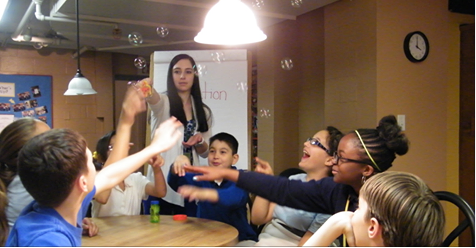
There are a variety of reasons why a young person may begin using alcohol or drugs. While most people don’t actually develop addiction, researchers have identified several major risk factors that may lead to drug or alcohol abuse in teens. Can you recognize them?
Think about the children and teens in your life and learn what to look for:
- Belief that drug use isn’t risky
- Parents with positive attitude toward drug use
- Low attachment to neighborhood
- Low commitment to school
- Poor family management
Youth who begin experimenting with drugs and alcohol are kids you may see every day: the cashier at your grocery store; the children across the street; your child’s classmates. It is critical that we, as a community, work to help them avoid the path toward addiction.
That’s why Compass Mark exists: To offer preventative education and resources to youth and teens who are at risk for substance abuse. Our individualized and group programs in schools and in the community help participants build skills that can change the course of their lives.
Prevention During Crucial Transition Periods
Compass Mark’s programs are offered to children and youth in grades K-12 and beyond, to make the biggest impact during the most crucial transition periods of their lives.
According to the National Institute on Drug Abuse, the key risk periods are during major transitions in children’s lives–especially the transition to middle and high schools. With new academic and social situations, as well as exposure to greater availability of drugs, chances increase that students will turn to alcohol and other substances.
In fact, almost 32% of Lancaster County 8th graders surveyed have consumed alcohol, 10% have smoked cigarettes, and 7% have used marijuana, according to the 2015 Pennsylvania Youth Survey. Lebanon County numbers are comparable.
Learn more about our programs that are designed specifically to impact young people during these critical times:
- Future Generations is an after-school and summer program that reduces risk factors by developing individual leadership skills and strengthening personal resiliency.
- Student Skills for Life serves as an intervention for youth currently experimenting with alcohol or other drugs, and serves as prevention for any adolescent or college-age individual by building communication, decision making, and goal setting skills.
- Lions Quest® is a life skills education program designed to help students develop positive commitments to their families, schools, peers, and communities and to encourage healthy, drug-free lives.
- Student Assistance Program (SAP) training provides educators with the tools and resources for the delivery of Commonwealth-mandated K-12 prevention, intervention, and support services, primarily in the areas of substance abuse and mental health. SAP attempts to intervene at the earliest stages of a problem, thereby reducing student risk factors, promoting protective factors, and increasing asset development.
- The Family Services Advocate program works to identify, support, and advocate for the unique needs and rights of children with incarcerated parents—an often-overlooked group at risk for drug and alcohol abuse. The program works to address their basic needs, strengthen fractured parent-child relationships, improve low school connection and success, and cope with the trauma caused by parental incarceration.